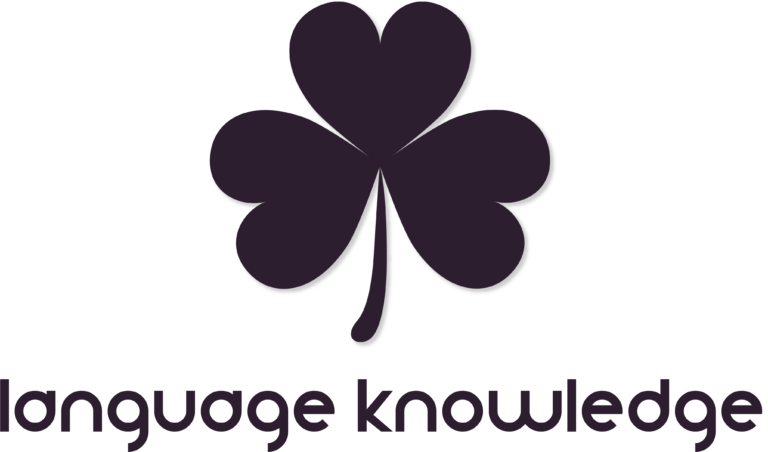What are auxiliary verbs?
You must learn more.
You needn’t answer.[/dt_teaser]
How do you differentiate auxiliary verbs in English?
For this purpose, a distinction is made between two groups of auxiliary verb. On the one hand the complete auxiliary verbs (be / do / have) and on the other hand the incomplete auxiliary verbs (can / must / may / will / need).
Consequently, the question arises:
What is the difference between complete and incomplete auxiliary verbs?
Basically, there is only one difference, which is that incomplete auxiliary verbs can only give 2 forms.
Complete auxiliary verbs in English
First and foremost, complete auxiliary verbs can and are used in English, both as auxiliary verbs and as full verbs.
All forms of auxiliary verbs in English from to be:
Present Tense:
| Affirmative Sentence | Negative Sentence |
|---|---|
| Singular: | |
| I am (I'm) | I am not (I'm not) |
| you are (you're) | you are not (you aren't) |
| he / she / it is (he / she / it's) | he / she / it is not (he / she / it isn't) |
| Plural: | |
| we are (we're) | we are not (we aren't) |
| you are (you're) | you are not (you aren't) |
| they are (they're) | they are not (they aren't) |
Past Tense:
| Affirmative Sentence | Negative Sentence |
|---|---|
| Singular: | |
| I was | I was not (I wasn't) |
| you were | you were not (you weren't) |
| he / she / it was | he / she / it was not (he / she / it wasn't) |
| Plural: | |
| we were | we were not (we weren't) |
| you were | you were not (you weren't) |
| they were | they were not (they weren't) |
Complete auxiliary verbs in English as an auxiliary verb:
Furthermore, the full auxiliary verbs, as long as they are used as an auxiliary verb, serve to form other tenses for it. For an overview:
- All progressive forms up to future 1 – and present – progressive
- Present Perfect, past perfect, future 2 and conditional 2
Complete auxiliary verbs in English as a full verb:
First of all, these complete auxiliary verbs, as long as they serve as full verbs, are used only in the simple past tense. It always expresses either a relationship, a state, or a property. An example:
I am your teacher (Relationship / state)
There is a book on the table (state)
Other complete auxiliary verbs in English:
In fact, this is always the same with the complete auxiliary verbs. For this reason, I have focused this page only on the to be auxiliary verb, since vast verbs will only obscure the important facts.
Incomplete auxiliary verbs in English:
As already mentioned, incomplete auxiliary verbs in English can only be used as an auxiliary verb. The only exception is “need“. The name incomplete therefore comes to the fact that these auxiliary verbs can form either a present tense form or a present and imperfect form.
A simple example of an auxiliary verb English is as follows:
You must go to school.
Clarification of the word “must”:
Forms of the word “must”:
As already mentioned above, must belongs to the auxiliary verbs, which has only one present tense. So you need a replacement verb, such as have.
(have – had / has – had)
Note:
If you want to say “Need not” with the negation of must, it means “must not“. But if you don’t want to say, “Need not” you must use “Needn’t“.
If you want to say “Need not”, use needn’t.
For clarity, this article will help: must not need not (in German)
Function:
NECESSITY:
The function of must is based on a necessity, while, on the other hand, needn’t express a lack of necessity.
You must learn more.
You needn’t answer.
ACCEPTANCE / CONCLUSION:
Furthermore, must express an acceptance or a conclusion. For example:
She looks quite young. She must be under 18.
ADVICE:
Last but not the least, must express an urgent advice or a request. For example:
You must go to school.
About me
Hey, I used to think that language learning was innate. Either you can speak English or not and it doesn’t matter how much you learn -“Anyway I don’t record good grades in English.” And that’s where English is so important.
After a while, I gave myself one last chance to learn English. Only this time I limited myself to the essential points.
For me, that meant verbs: formation – examples – signal words & usage
This method enabled me to learn English faster than ever before.
Since then I know that learning languages is not innate. And through that realization, my vision has become to offer other students the opportunity to learn English, just like I did back then. Now I ask you to help me by sharing this article with your friends!
Thank you very much!
You read: Auxiliary Verbs





